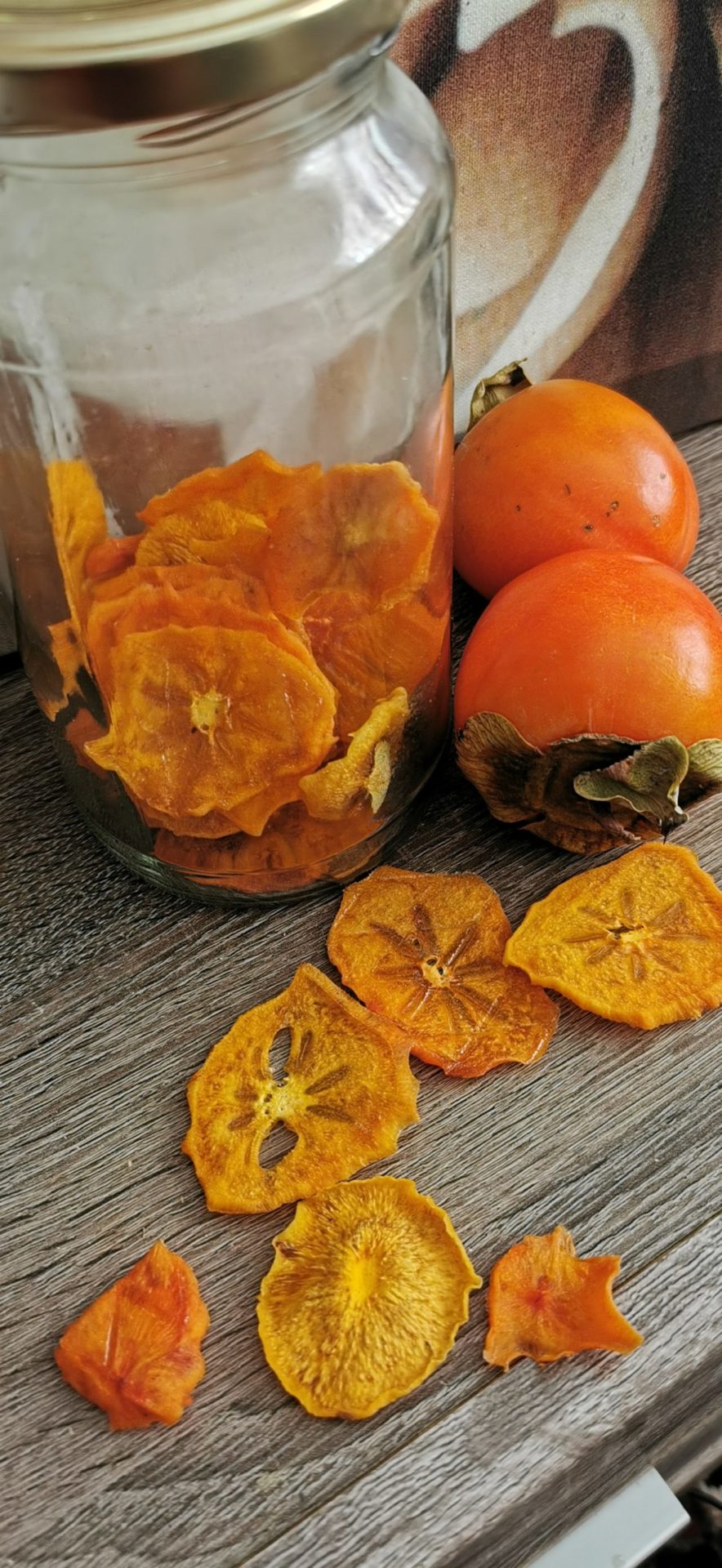No products added!
Persimmon Fruit is an Excellent Source of Fiber
- This year I started with tomatoes and persimmon…
Potential Health Benefits of Dehydrated Food
Dehydrating food can save you money, reduce food waste, and speed up your cooking. You can also add seasoning or spices to food as you dry it, stocking your kitchen with healthy, easily portable snacks
Eating a variety of colorful fruits and vegetables every day may lower the risk of disease. The yellow-orange persimmon fruit is an excellent source of fiber, Vitamin A and C, Vitamin B6, potassium and the mineral manganese.
Persimmons are fat-free and are a good source of healthy carbohydrates and natural sugar.
The two most common varieties of persimmons are fuyu and hachlya. Fuyu persimmons are yellow-orange, shaped like tomatoes, firmer when ripe. The fuyu is at its best when barely soft.
The hachiya persimmon are very tart, unless extremely ripe. Ripe hachlyas are soft, with a silky smooth pulp inside.
They are orange-red and shaped like an acorn.
Whether you prefer fuyu or hachlyas varieties, look for persimmons that are glossy looking skin without cracks or bruises and feel heavy for their size.
To store persimmons that are almost ripe or just ripe, keep them at room temperature. To hasten ripening, store persimmons in a paper bag.
Persimmons can be eaten fresh, dried or cooked. Fresh fruits can be cut into quarters or eaten like an apple.
Dried persimmons can be used in cookies, cakes, puddings, salads and a topping for cereals.
Including more fruits and vegetables in your daily diet will help maintain heart health, vision health and healthy immune systems.


